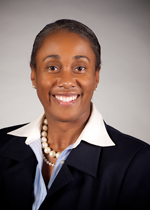Students learn well through active participation, both physically and mentally. Dr. Noel M. Estwick took a different approach for his AGEC 4233: Land Resources Economics class. This class exposes students to land management and investigation of institutions and government as they relate to agriculture. On November 8, 2016 the students went on a field trip to the Harris County Appraisal District (HCAD) to see firsthand how GIS is utilized to manage land resources.
Estwick wanted to expose his students to analysts relevant to the content and educational goals of the course and combine it with potential job placement. As their professor this fall, he wanted to show students that these entities like a University have spatial footprints, exterior and interior facets, and life cycles that grow, change and require stewardship through planning, management, and maintenance.
The students on the field trip spoke with the appraiser and analysts regarding area, neighborhood and market analyses. The employees of HCAD discussed with the group the applications of technology, learning design, and cognitive and affect learning outcomes. The area data collected on economic influences, like demographic patterns, employment, income, and general trends in property prices or rents, provide an economic outlook for the real estate market. During the talk regarding neighborhood and market analysis, students gained knowledge on a model specification that concentrates on geographic stratification of the local supply and demand that spans jurisdictions.
As a USDA 1890 Scholar and graduating senior from Clarksville, TX, Lonnie Hobbs, Jr. viewed the field trip as informational and eye-opening. Hobbs, who previously interned with the Office of the Assistant Secretary for Civil Rights as a program clerk stated, “This field trip encouraged us to build on classroom instruction and gain a better understanding of the topic. It further helped me on a personal level
Kelley A. Redmon
Communications Specialist
karedmon@pvamu.edu
(936) 261-5009

